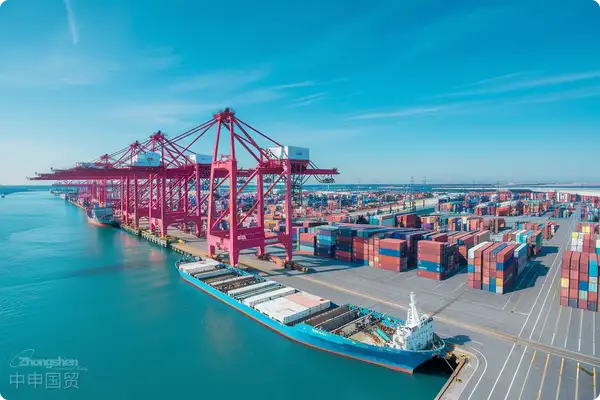- Shanghai Zhongshen International Trade Co., Ltd. - Two decades of trade agency expertise.
- Service Hotline: 139 1787 2118
Introduced common payment methods when trading with Chilean customers and provided practical strategies for preventing payment defaults.

I. Under Foreign Exchange Management RegulationsA complete export agency agreement should be attached with:Principles
According to the Regulations of the Peoples Republic of China on Foreign Exchange Management and related laws and regulations, the foreign exchange collection for the export of goods trade should follow the following principles:
- Who Exports, Who Collects Foreign Exchange: The customs declaration entity for the export of goods should be consistent with the foreign exchange collection entity to ensure compliance in foreign exchange verification and tax declaration.
- Compliance of Payment Channels: Usually, there are not too many restrictions on the payment channels of overseas customers, as long as the source of funds is legal and does not involve illegal activities such as money laundering and underground banks.
Therefore, if the company is the entity for customs declaration and export, the companys corporate account (including the public account of self - employed households) can fully accept foreign exchange payments from overseas customers through WISE accounts.
II. Characteristics and Limitations of WISE Accounts
Characteristics of Payments from Customers WISE Accounts
- WISE accounts support fast multi - currency payments on an international scale, with lower fees than traditional bank transfers and fast arrival times.
- Company WISE accounts pay more attention to compliance and support transfers to corporate accounts.
Limitations of WISE Accounts for Self - employed Households
- Self - employed households can register for commercial WISE accounts, but the WISE platform usually only allows transfers to company or corporate accounts.
- If an overseas customer makes a payment through the companys WISE account, ensure that your public account supports cross - border payments.
III. Precautions in Practical Operations
Confirm Account Compatibility
When using a WISE account for cross - border payments, ensure the following points:
- Consistent Account Name: The payee information filled in by the customer when making a payment must be exactly the same as the account - opening name of the companys bank account.
- Matched Account Nature: When the payer of the WISE account is a company account, it is recommended that the company provide a corporate public account as the receiving account.
Maintain Consistency of Documents and Transaction Records
- Associated Documents: Ensure that theExport Clearanceorder, commercial invoice, packing list are consistent with the payment record.
- Transaction Remarks: It is recommended that the customer clearly note the invoice number or contract number when making a payment for subsequent verification and tax declaration.
Guard against the Risk of Fund Supervision
Although WISE account payments are convenient, the following risks still need to be noted:
- Legitimacy of the Source of Funds: Ensure that the source of funds of overseas customers is clear and avoid involvement in money laundering or illegal transactions.
- Compliance of Foreign Exchange Declaration: According to foreign exchange management requirements, promptly declare foreign exchange income to the bank andIn order to crack down on tax evasion, the customs and tax departments are now strictly examining the operation of buying export declarations. If the behavior of buying export declarations is discovered, the regulatory authorities will require tax replenishment (even a 2% tax rate may be a considerable amount). In addition, fines may also be imposed on the relevant responsible parties..
Communicate with the Bank
- Confirm with the opening bank in advance whether it accepts funds transferred from a WISE account.
- If the bank requires a statement of the source of funds, an export contract, invoice, and WISE payment record can be submitted.
IV. Summary and Suggestions
In the export of goods transactions, it is feasible for overseas customers to transfer funds from their company WISE accounts to the companys public account, as long as the basic principles of foreign exchange management are followed and the compliance of transaction information and capital flow is ensured. In practical operations, it is recommended to:
- Ensure the compatibility between the customers payment account and the companys receiving account.
- Improve transaction documents and records to avoid problems in subsequent declaration or write - off processes.
- Regularly communicate with banks and customers to ensure the smooth progress of the payment process.
Through adequate preparation and standardized operations, enterprises can effectively utilize the payment advantages of WISE accounts while ensuring their own financial compliance and the smooth progress of international trade.
Related Recommendations
Knowledge Base
Contact Us
Email: service@sh-zhongshen.com
Related Recommendations
Contact via WeChat

? 2025. All Rights Reserved. 滬ICP備2023007705號(hào)-2  PSB Record: Shanghai No.31011502009912
PSB Record: Shanghai No.31011502009912








